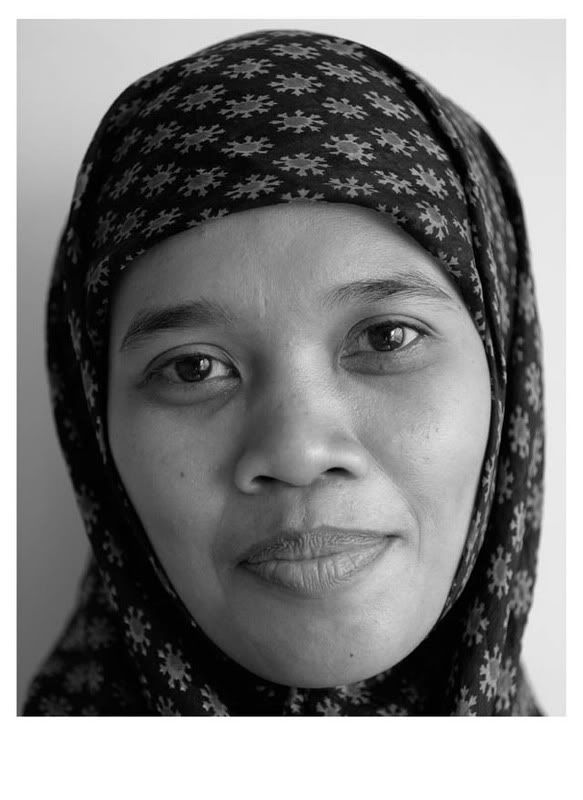By : Sapariah Saturi Harsono
Indonesia Rising, 7 September 2009
Public buses were seen on the Rangoon streets. It is mostly open buses with no windows. Taxis have no meters, no AC.
PASSENGERS already arrived at the Mingaladon airport in Rangoon. Some were waiting for their baggage. Some lined up for the immigration counters. I arrived with a Singapore Airline flight. My first sight was the taxi drivers, offering the rides. Interestingly, men and women wear longyi. They don’t wear western clothes like what most people do in South East Asia. Porters, taxi drivers, airport officials and everyone else wear longyi.
When going out of the airport, more longyi-wearing men were seen. An old bus already waited for my group. It was white with rusted parts here and there. The next sight was rundown taxis, also painted white. “My God, it is so old fashioned,” I murmured. Rangoon reminded me to Pontianak, my hometown, in the 1980s. Rangoon’s vehicles are mostly Toyota sedans. I only saw around ten new cars during the 25-minute from the airport to an Indonesian diplomat residence near the Indonesian Embassy on Pyidaungsu Yeiktha Road.
Public buses were also seen on the Rangoon streets. It is mostly open buses with no windows. Taxis have no meters, no AC. Their windshields cannot be closed. “Well, it is the real situation. Most vehicles were produced in the 1980s,” said Gopokson Situmorang, the second secretary at the Indonesian Embassy to Burma or Myanmar. He brought us to the diplomat compound. I happen to stay in a guest room inside his official residence.
Big trees, however, are lining the Rangoon streets. The streets are mostly empty, no traffic jam like Jakarta. Interestingly, I also did not see any motorcycle in Rangoon. According to Myanma Thadin website, motorcycles are banned on Rangoon roads but for selected people, mostly, military intelligence and police officers. The secret spies use motorcycles to shadow opposition activists. On the streets, I saw only old cars and bicycles with side cars. Most buildings are also old and looked rundown. Similar to Jakarta, Rangoon has many street vendors selling food, drinks, fruits and pirated CDs.
Without enough vehicles, Rangoon has many pedestrians. I saw many people walking in the city, including Buddhist monks in their pink (female) and orange (male) robes. Longyis worn by males are called pa-so, while those worn by females are called hta-main. They have different patterns. Hta-main are obviously more colorful than pa-so. In my Malay worldview, we call this cloth sarong. Rangoon ladies also put white powder around their eyes made from fragrant wood called thanatka. Men chew betel nut.
An Embassy guide accompanied my group, passing beautiful parks and a lake surrounded with thousands of trees. It is very beautiful. I remembered Burma’s democracy icon, Aung San Suu Kyi, whom I know living in a dilapidated two-story mansion by Inya Lake. In Jakarta, her face is used in many Facebook photos.
“Can we pass along Suu Kyi’s house?” I asked my guide.
“No, no, forbidden,” said the guide. Panic aroused from his voice.
He only showed me to a road intersection leading to Suu Kyi’s house on University Avenue. It is totally blocked by a barbed-wire barricade.
In a widely criticized decision, Suu Kyi was given 18 months' house arrest on August 11. A Rangoon court found her guilty for harboring an American “intruder” at her lakeside mansion in May. My guide told me that security is heightened after the verdict.
Aung San Suu Kyi is the general secretary of the National League for Democracy in Burma. Her party swept elections in 1990 but the results have never been honored by the military, which has ruled the Burma since 1962. In Burma, she is called Daw Aung San Suu Kyi. Daw literally means "aunt".
When entering the Embassy compound, I turned on my hand phone. “Only emergency call.” It is the only message that appears on my screen.
“This is crazy,” I said.
“Me too. On my screen, it is only said, ‘Forbidden,’” said Santi Dwisaputri, a dancer who travelled from Jakarta with me.
Welcome to the military-ruled Burma. Hand phones are blockaded!
“You can buy SIM card here at US$20, but you cannot send text message. Only making calls, well, only for five minutes,” said Situmorang.
Internet is another problem. Many websites are banned, including Yahoo. Internet access is extremely slow.
A TV One reporter from Jakarta, Muhammad Takbir, has a big problem with the slow internet. Takbir and I visited Rangoon to cover the Indonesian Day at the Embassy on Aug. 17. Takbir wanted to send a video file to his head office in Jakarta. He tried a number of times but failed. The electricity went down several times.
He did not succeed until midday when his office planned to air his report in the afternoon news program. Takbir was nervous. We went to Hotel Traders, probably, Rangoon’s biggest hotel where the Indonesian Embassy held the party. But it did not succeed. He returned to the Embassy, asking the IT guy to help him send an email and the video attachment. Eight hours later he finally managed to send one file. “It is a real struggle. I have never experienced this. My office has been waiting for the file since morning,” he said.
I was more fortunate. As a newspaperwoman, I need only to send a short report. Still it was not as fast as I usually do in Jakarta or Singapore. I spent about 15 minutes just to send an email.
Now I began to feel how stressful it is to live inside a military junta-ruled country.
